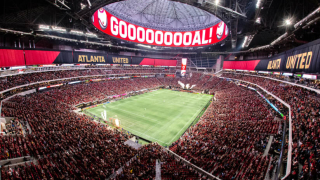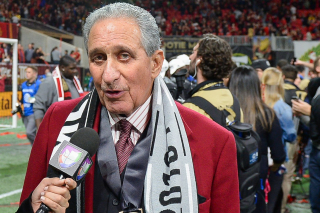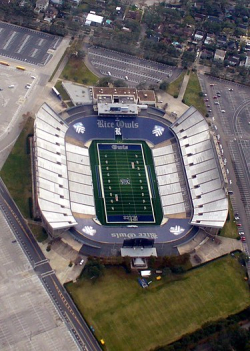
Two business models are colliding.
The European business model is built on the club. Clubs organize into leagues, but government interference or subsidy is prohibited. The result is capitalism red in tooth and claw. There are haves, and there are have-nots. But there is some social mobility. A bad club loses money when it drops down the national pyramid. A good club can make money as it rises.
The American model is based on the franchise. Leagues control franchises, much like McDonald’s controls its franchisees. Government subsidy is actively encouraged. Most college teams are controlled by state governments.

In Europe, clubs regularly go broke. Billionaires and even nations can dominate by buying into clubs, then over-investing in them. But fans have an emotional attachment they wouldn’t otherwise. Promotion and relegation make every game important. The idea of a club moving, as Wimbledon did two decades ago, becoming Milton Keynes, is considered anathema.
As good as things are for European billionaires, America is much better. The franchise model limits competition. Clubs can easily blackmail cities for new stadia and other tax breaks by threatening to move. Here in Atlanta, the Braves baseball team got $2 billion from Cobb County last decade, a free stadium, free land to develop, and new freeway lines to bring in the fans. The Falcons football team got a billion-dollar palace from the city of Atlanta, which their owner had designed with a new soccer franchise in mind.
Home Depot co-founder Arthur Blank paid $525 million for the Falcons in 2002. Thanks to TV, the club is now worth $4 billion. Blank paid $70 million for Atlanta United . It’s now worth $865 million.
What makes all this newsworthy are two events showing the weakness in both models.

Second, college sports are coming apart. Realignment has gotten ridiculous, and it has nothing to do with the level of competition. Players can now be paid, but losses for nearly everyone are piling up. A few programs are making money, but most are losing it hand over fist.
How will this work out?
The effort to create a “Super League” in Europe is trying to bring the MLS model to the continent. Relegation is eliminated, profits are guaranteed, all the money flows to a few dozen wealthy hands.
Meanwhile, American college football is dying. The Super League is already here and if you’re not in the right franchise you’re doomed, regardless of history or on-field success. This is going to justify an underground movement to get rid of college sports, which are increasingly just free minor leagues for the professional franchises.
Fans on both sides of the Atlantic are being ignored in all of this. But it’s our money, in the form of TV ads, ticket sales, and taxes, that keeps it all rolling. We should have the final say.










